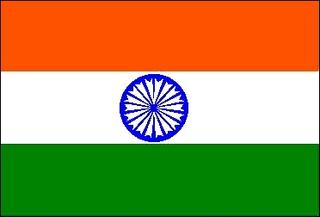
Living full-time in Asia, one grows weary of newcomers' romantic ideas.
Where did this idea come from - that "Namaste" means "The god within me honours the god within you," or some other Orientalist, new age spin? This is an imputed meaning; there is nothing in the literal translation to indicated anythng other than this: I Bow To You. I maintain that this is a myth (about 'honouring the god') fostered by foreigners. Bowing is just a pan-Asian cultural norm, there is nothing especially spiritual about it. In fact, quite the opposite. I don't think *most* Hindus bow for any reason other than ingrained subordination.

Sanskrit is not a mysterious, ancient language but one I was taught as a conversational, modern one, as part of the Samskrita Bharati Sanskrit revival programme. In case you think I was instructed by secular humanists, my first teacher was a practicing Hindu and Indian nationalist. Namaste means "I bow to you" (I believe the Te ending makes it To You, I bow would be namaami) just like "janaami" means "I know."
Okay, everyone bowing is not doing so out of sheer fear. Great masters like Amma may bow for one reason, average people for another. But Amma doesn't bow to everyone and everything because she is Hindu, she bows because she is realized and sees God in everything and everyone. I think realized beings everywhere would do the same, Hindu, Buddhist, whatever.
The fact that they are Hindu has nothing to do with it, IMHO. The average Brahmin (unless he is some kind of liberal like Vivekananda) will never, ever bow to another Hindu of lower caste, and that goes for most castes on down (Kshatryia wouldn't bow to a Vaishya, etc). What happens, you may ask, if a Brahmin has a boss or superior of a lower caste? Conveniently, this doesn't happen very often (three guesses as to why?).
The average Indian, Hindu or otherwise, does not go around honouring the god in everyone and everything else. They live in fear of power, and the bowing is a reflection of that. If you want to call that respect, well, I have a different definition of respect. It may be respect, but it's not mutual.
It's funny to watch the doormen, waiters, and other servicepeople here greet guests with Namaste and a slight bow, and watch the foreigners return this. The foreigners don't understand that this is inappropriate. In fact, it lowers the workers' view of the foreigners. (what are they, stupid, bowing to a peon?) The workers are the workers, and don't expect this gesture to be returned - after all, we are not subservient to them. Their world is a strictly hierarchical one and we bewilder them by not knowing "our place." Nepalis and Indians never make this mistake. They just kind of slightly nod and keep doing, which is all that is expected of them. There is no mutual respect in Indian culture - it's all top down !
How much of this has to do with Hindu values, how much is just Indian culture, who knows? The fact is that most of the people doing this are Hindus by birth, and this is how they behave. If bowing to the god in everyone is in fact a Hindu value, they're not practicing it.
Watch they way people communicate. They don't have a dialogue. Superiors give orders and underlings follow. Parents tell their kids what to do and the kids do it. Husbands give orders and wives follow. The idea of honouring everyone equally is a Western one.
My observations about India and Hinduism come from living in India, practicing Hinduism and observing others doing the same. What's written in books, by either foreigners or Indian intellectuals, doesn't have much bearing on this (except as an amusing contrast sometimes!).
I think everyone coming from the West to study Hinduism should close their books and go observe behavior in temples, pujas, homes, markets and so forth. That is where Hinduism is practiced. Whether it's practiced correctly or not is another question.














No comments:
Post a Comment